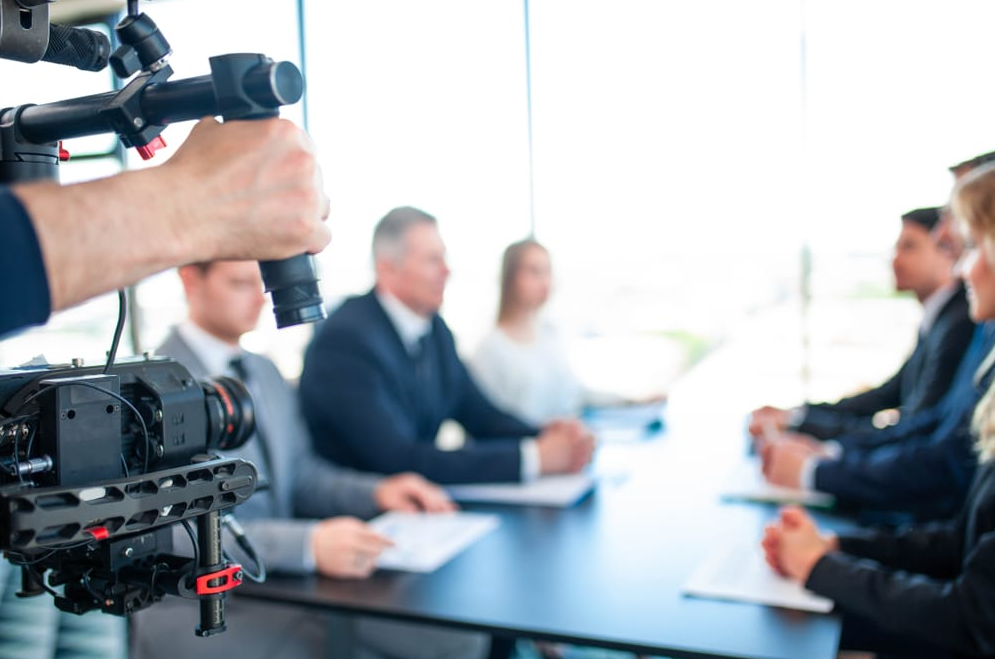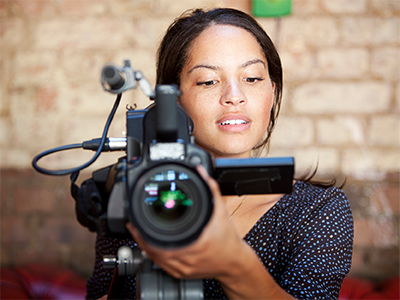The Function of Lawful Videography in Depositions and Trials
Legal videography has actually emerged as a necessary device in both depositions and tests, giving a diverse strategy to documenting witness testimonies. As legal experts significantly identify its value, it triggers a deeper examination of exactly how these visual documents can affect juror assumptions and trial results.
Relevance of Legal Videography
Lawful videography plays a crucial role in the paperwork and discussion of depositions and trials. This specific area combines technical abilities with legal understanding to produce a trustworthy record of proceedings that can considerably influence case end results. The visual facet of legal videography improves the understanding of witness statement, permitting jurors and judges to observe not just the spoken words but additionally the temperament, feelings, and body language of the witnesses.

The importance of lawful videography prolongs beyond the court; it additionally plays an essential role in maintaining evidence for future reference, whether for appeals or further lawsuit. Its combination right into the legal procedure is vital for ensuring a fair and exact depiction of the truths, ultimately contributing to the quest of justice.

Process of Legal Videography
While catching the nuances of depositions and tests, the process of lawful videography involves a number of crucial steps that make certain high-quality, accurate recordings. An expert lawful videographer prepares by examining the instance materials and comprehending the specific demands of the deposition or test. This prep work includes familiarizing themselves with the individuals and the context, which assists in catching essential details.
On the day of the recording, the videographer establishes the necessary tools, which commonly consists of high-def electronic cameras, microphones, and appropriate lights. Ensuring ideal angles and sound top quality is vital, as it directly impacts the performance of the recording. The videographer interacts with attorneys and individuals to establish methods, guaranteeing that everybody understands the recording process.
During the deposition or test, the videographer meticulously records the procedures, paying very close attention to both spoken and non-verbal cues. legal videography. This includes recording the demeanor and reactions of witnesses and lawyers. After the session wraps up, the videographer may modify the video for clearness and compliance with legal standards, producing an end product that properly shows the process for future recommendation and usage in legal contexts
Advantages in Depositions
The consolidation of videography in depositions offers numerous benefits that improve the total procedure of collecting proof. One primary benefit is the ability to catch witness testimonies with aesthetic and acoustic integrity, have a peek at this website providing a more accurate depiction of the witness's attitude, tone, and body language. This multidimensional strategy allows attorneys and juries to assess credibility a lot more successfully than conventional written records alone.
Additionally, videographed depositions function as a powerful tool for protecting testament. Needs to a witness ended up being unavailable for test, their taped deposition can be played in court, guaranteeing that their proof stays accessible and relevant. This aspect significantly reduces the danger of losing vital details that can impact instance outcomes.
In addition, making use of lawful videography promotes better prep work for attorneys. Assessing video footage allows lawful teams to examine and refine their approaches, recognizing staminas and weaknesses in their situations. This primary benefit can bring about even more engaging discussions in court.
Finally, videography improves the general professionalism and trust of the deposition procedure, instilling confidence in clients concerning the thoroughness of their legal depiction. By leveraging modern technology, attorneys can dramatically improve the performance of depositions.
Effect On Tests
In numerous trials, the assimilation of videography can dramatically affect the presentation of evidence and the court's understanding. Legal videography captures witness testaments and critical evidence in a dynamic format, permitting jurors to involve with the product on multiple levels. This aesthetic element boosts the storytelling facet of a trial, supplying context and psychological resonance that standard text-based proof might do not have.
Furthermore, video clip recordings can act as powerful devices for impeachment during cross-examination. When disparities develop in between a witness's previous statements and their court testament, video clip evidence supplies an objective referral that can guide jurors' point of views. This immediacy and clearness can bolster the credibility of a party's story while concurrently threatening opposing disagreements.
Furthermore, making use of videography can assist enhance complex details, making it extra obtainable to jurors that might struggle to comprehend detailed information offered only through spoken statement. By combining visuals with acoustic info, lawful videography can improve retention and check my reference understanding, ultimately affecting find out the jury's decision-making procedure. For that reason, the influence of videography in trials expands beyond mere aesthetic appeals; it plays an important duty in forming the legal landscape and outcomes.
Future Trends in Legal Videography
As we look toward the future of legal videography, a number of arising fads assure to improve its function within the courtroom. One substantial trend is the combination of expert system (AI) in video clip evaluation and editing and enhancing - legal videography. AI can enhance the process of recognizing vital moments in tape-recorded depositions, enabling lawyers to quickly access appropriate content, therefore boosting performance in situation preparation
In addition, the surge of virtual truth (VIRTUAL REALITY) and augmented fact (AR) innovations is expected to transform how jurors experience proof. By submersing jurors in a substitute atmosphere, these technologies can give an extra profound understanding of intricate situations, causing even more informed considerations.

In addition, the increasing demand for remote depositions, increased by the COVID-19 pandemic, will likely proceed. Legal videographers will certainly require to adjust to new software program and systems to make sure premium recordings in virtual setups.
Lastly, the expanding focus on information safety and security will certainly demand more stringent procedures for keeping and sharing video evidence. As the legal landscape progresses, lawful videographers have to remain abreast of these trends to keep their importance and effectiveness in the judicial procedure.

Conclusion
In summary, lawful videography serves an important function in the judicial process, improving the honesty of depositions and trials. By recording the nuances of witness statements, this tool not just preserves vital proof however also aids in providing info properly to jurors. The value of visual paperwork in examining reliability and promoting cross-examination can not be overemphasized. As technology remains to develop, legal videography is poised to more change its function within the lawful landscape.